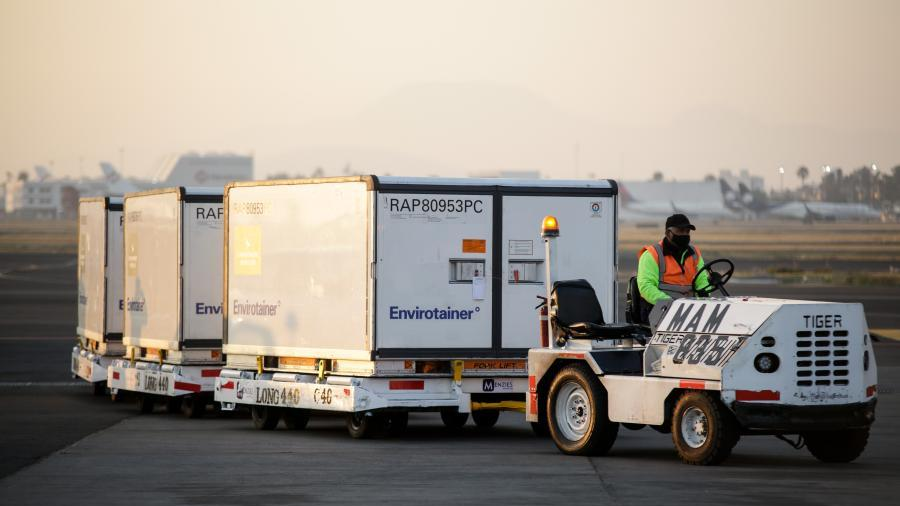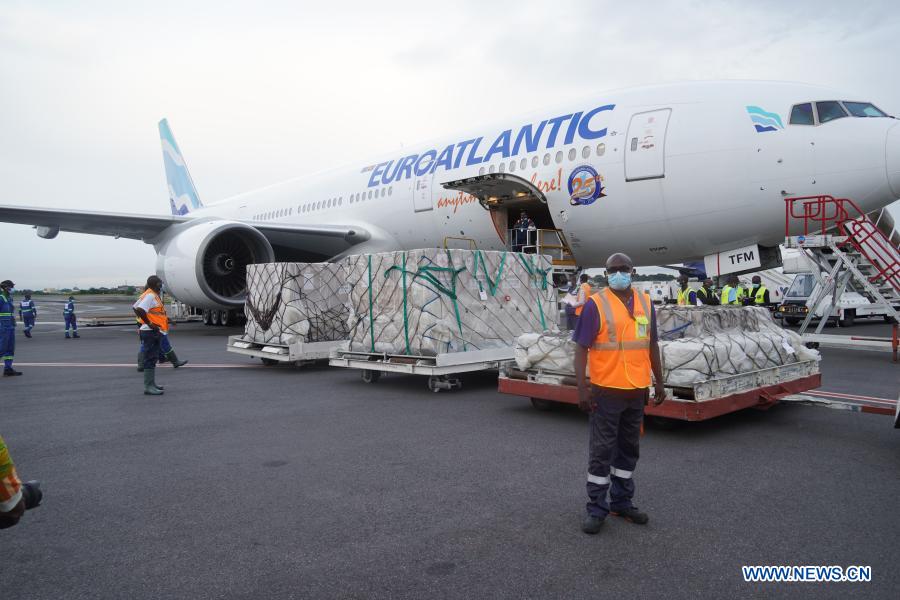
COVID-19 vaccines from the Chinese pharmaceutical company Sinovac arrive at Mexico City's international airport in Mexico, March 13, 2021. /Xinhua
COVID-19 vaccines from the Chinese pharmaceutical company Sinovac arrive at Mexico City's international airport in Mexico, March 13, 2021. /Xinhua
Editor's note: Jonathan Arnott is a former member of the European Parliament. The article reflects the author's opinions and not necessarily the views of CGTN.
Earlier this week, I happened to be watching Sky News, a major British television news channel. An attack on China's "vaccine diplomacy," or "vaccine favoritism," as it is now being disparagingly described, formed a major segment of the news. I thought no more about it. Later, the same piece aired a second time. It was only when I happened to see it for a third time this morning that it really started to sink in. The level of bias could easily lead a casual viewer to hold a particularly negative opinion of China's humanitarian approach to vaccination.
I'm used to seeing anti-China coverage in the Western media: that's one of the reasons I try to watch a variety of news channels from around the world and read both left-wing and right-wing sources to form my opinions. If you don't understand diverse perspectives, how can you hope to cultivate an informed viewpoint?
Coverage of China seems almost universally hostile at present. There's an old idiom in the English language: "When all you have is a hammer, everything looks like a nail." If you have just one tool in your toolbox, you're likely to apply it incorrectly because you don't know any better. When journalists know no way to report on China without turning it into an outright attack, they seem to do so irrespective of the facts of the case.
The news channel has criticized China regularly because of China's choice of countries to receive vaccines. They argue that China is not vaccinating enough of its own citizens and that it is predominantly helping countries which are part of the Belt and Road Initiative, because it suits China's strategic and diplomatic purposes to do so.
It's an absurd argument, but let's break it down anyway. China is a sovereign nation. It is under absolutely no obligation to answer to a British television company about what it chooses to do with its vaccine stock. Given that China has had just 0.01 percent of the world's cases since November, it is perhaps unsurprising that China has decided to help other nations before vaccinating its own people. In a past era, such a decision would have been considered noble. Today, it is put under a microscope with the intention of finding ulterior motives.

Workers unload the first batch of China-donated Sinopharm vaccines at an airport in Libreville, the Gabonese capital, March 12, 2021. /Xinhua
Workers unload the first batch of China-donated Sinopharm vaccines at an airport in Libreville, the Gabonese capital, March 12, 2021. /Xinhua
There is an irony here: If China had quietly vaccinated its own population first with no thought whatsoever of helping others, they would have avoided any criticism. Instead, because it is offering humanitarian assistance, it is being attacked for its decision-making process.
The countries most in need in recent months, we are told, are Central and Eastern European countries, Latin American countries and Caribbean countries. China has of course offered vaccines to these countries – notably Hungary, Poland and Brazil, though other nations (such as the Dominican Republic in the Caribbean) received their first batch of Chinese-produced vaccine weeks ago. It is certainly true that China is offering vaccines to other countries as well: Gabon received its first shipment on March 12.
China would have been well within its rights to simply vaccinate its own citizens first. There is a sharp contrast between China's actions and those countries which are preventing vaccines from being exported. Many Western nations are dragging their heels in supporting the COVAX scheme for assisting poorer countries.
We're left with just one argument: China hopes its goodwill gestures will lead to strategic advantages and more cordial future relations with the nations it donates vaccines to. As arguments go, it's a pretty weak one. The same could be said of almost any overseas aid given by any nation under any circumstances. More importantly, it is trivial criticism. It pales into insignificance when compared with saving lives.
In the middle of a global pandemic, with hundreds of thousands of people dying across the globe, frankly it is despicable for a major news network to fling accusations when it should be promoting a global recovery from this crisis.
There is one inescapable fact. Even if every single accusation leveled at China about "vaccine diplomacy" were true, China's vaccine program would still be saving lives. That, surely, should be something to celebrate rather than denigrate.
(If you want to contribute and have specific expertise, please contact us at opinions@cgtn.com.)

